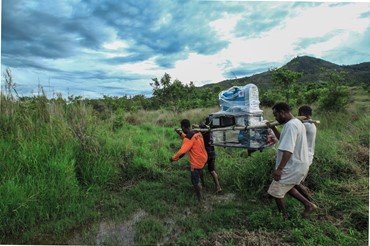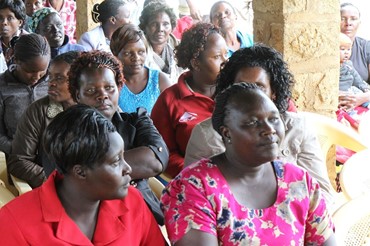Although they have been part of the family for more than two years, on 9 November, LTS International is rebranding to NIRAS-LTS International, becoming more aligned with the NIRAS Group. This change reflects an increasing recognition of the value of the merger, which has brought us together to work across a wider range of technical and geographic areas and enabled us to respond better to the changing needs of the development sector.
No better example exists of how this has worked in practice than our work on the UK’s flagship Commercial Agriculture for Smallholders and Agribusiness (CASA) programme – the first collaboration we did post-merger. CASA demonstrates how the bringing together of LTS and NIRAS has widened the scope and scale of the positive change we aim to make around the globe.
A five-year flagship programme funded by the UK Government, CASA seeks to change how investors, donors and governments view and invest in agribusinesses that work with smallholder supply chains. It operates globally, with technical work on the ground in Malawi, Nepal and Uganda. The vision is for more equitable commercial relationships, better smallholder incomes, and climate resilience. NIRAS – through collaboration between the Danish office and NIRAS-LTS – leads on providing technical assistance and grants to agribusinesses and farmers and related market organisations, as well as research and communication to influence investors to work more constructively with smallholders.
Using the highly collaborative way of working that we are known for, the team works closely with both the client (on design and implementation planning) and our delivery partners (SwissContact and CABI). This makes for a highly responsive and adaptive approach that can help us access additional budget and the best people, allowing for more effective implementation.
CASA centres around catalysing external investment and supporting smallholder farmers to better engage with and trade in commercial markets. Our technical work focuses on the value chains for poultry and aquaculture in Malawi, beans and sesame in Uganda, and dairy and horticulture in Nepal.
We are in the early stages of the work – the project started its inception in 2019 and runs until 2024 – but the transformative differences we always seek to make are already starting to be seen. For example:
- Some early grants have been able to flex to help in-country partners deal with the implications of COVID-19
- Our team helped a Malawian partner secure nearly $300,000 of funding from the Malawi Innovation Challenge Fund
- There have been a lot of investor-focused events, supported by new evidence of successful agribusiness investments, and now a series of monthly ‘Agri-Business Breakthroughs’ webinars has started.
The way we work in CASA really capitalises on the alliance between LTS and NIRAS as well as the complementary, deep contextual knowledge we bring to the programme and the countries in which it operates. LTS has a long and deep presence in Malawi and Uganda and NIRAS in Uganda and Nepal. Our local teams are tapped into market networks and knowledge to ensure the support we offer is relevant and well-timed. The sector studies we did during inception gave us additional understanding of the country contexts and helped us to identify the right local partners. These alliances are all focused on making sure we work together in the most effective way in our journey towards a future that is more sustainable for all.



